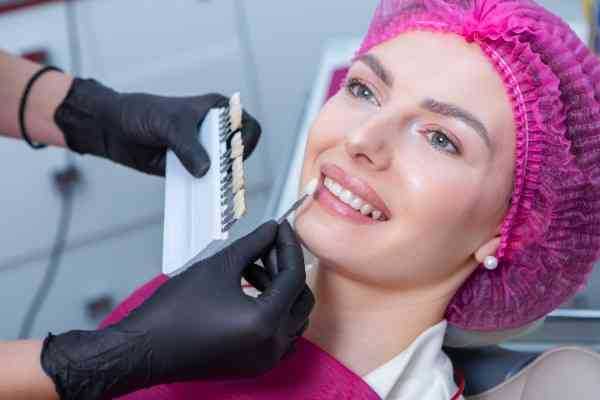In the quest for a brighter smile, many people turn to the latest oral care trends. One such trend that has gained popularity across social media and supermarket shelves is charcoal toothpaste. Promising to lift stains and whiten teeth naturally, it’s no surprise that this black paste has piqued curiosity. But behind the hype, does charcoal actually live up to the promise of a whiter smile, or does it pose more risk than reward? Let’s delve into the truth behind charcoal and its role in teeth whitening.
What Is Activated Charcoal?
Activated charcoal differs significantly from regular barbecue charcoal. It’s a fine, black, odourless powder made by heating materials like coconut shells or wood at high temperatures, creating a highly porous surface.
Key features include:
- Made from natural sources such as coal or coconut shells
- Highly porous, allowing it to adsorb substances
- Binds to toxins, stains, and gases
It has historically been used in emergency medical settings to treat cases of overdose. Today, it’s also found in:
- Skincare products
- Nutritional supplements
- Oral care items like charcoal toothpaste
Its detoxifying properties have made it popular in the wellness industry.

Why Charcoal Toothpaste Became Popular
The growing popularity of charcoal toothpaste is largely driven by celebrity promotions and social media influencers. Eye catching videos and before and after photos showcasing sparkling white teeth have fuelled the belief that charcoal can offer quick, natural results.
Some of the reasons it appeals to users include:
- Perceived as a "natural" alternative to chemical whiteners.
- Belief in detoxifying benefits for the mouth.
- Curiosity driven by viral content and influencer recommendations.
Retail shelves and online stores now feature a range of charcoal based toothpastes promising everything from fresher breath to dramatically whiter teeth, but how much of it is supported by science?
What the Science Says: Does It Really Whiten Teeth?
Charcoal toothpaste may initially give the impression of whiter teeth by removing surface level stains, but its long term effectiveness is not well supported by clinical evidence. Activated charcoal is mildly abrasive and may help with external staining from substances like coffee or tobacco, yet it does not bleach the teeth or correct deeper discolouration.
Key Concerns with Charcoal Toothpaste:
- Lack of Fluoride: Many charcoal products don’t contain fluoride, which is crucial for preventing cavities and maintaining enamel strength.
- Marketing Claims: Dental experts, including the British Dental Association, caution against misleading claims that promote charcoal toothpaste as a complete whitening solution.
- Safety Standards: Some charcoal pastes don’t comply with regulated dental product standards, and their long term safety remains uncertain.
Thus, while temporary improvement might occur, charcoal is no substitute for professional teeth whitening Telford clinics provide.
Potential Risks and Drawbacks
Charcoal toothpaste may not be as safe as it appears on the surface. Frequent use can do more harm than good, particularly when it comes to your enamel and gums.
Here’s a breakdown of the common concerns:
Concern | Details |
Abrasiveness | Over time, charcoal particles may wear down tooth enamel, resulting in increased sensitivity. |
Lack of Fluoride | Many charcoal pastes do not contain fluoride, essential for cavity defence. |
Gum Irritation | Charcoal can be harsh on soft tissues, causing inflammation or soreness. |
Black Residue Buildup | Some users report charcoal getting stuck in fillings or between teeth. |
Unregulated Products | Not all products undergo clinical testing or meet dental safety standards. |
With continued use, abrasion may reveal the dentin beneath the enamel, a yellowish layer, ultimately making teeth look duller rather than whiter.
Charcoal vs. Other Whitening Methods
To better understand whether charcoal is a smart choice, it's useful to compare it with other whitening options available through a dentist in Telford or over the counter:
Comparison Table: Whitening Methods
Method | Pros | Cons |
Charcoal Toothpaste | Removes surface stains, trendy appeal | Abrasive, may erode enamel, lacks fluoride |
Whitening Toothpaste | Safe for daily use, contains fluoride | Slower results, limited whitening power |
Whitening Strips/Gels | Affordable, moderate effectiveness | Can cause sensitivity, uneven application |
Professional Whitening (In Clinic) | Quick and visible results, custom treatment plans | More expensive, requires dentist visit |
Professional whitening solutions, while pricier, are tailored to your dental needs and monitored for safety, making them a preferred choice for many patients in Telford.
How to Choose the Right Charcoal Toothpaste
Not all charcoal toothpastes are created equal. If you’re still curious to try one despite the concerns, selecting the right product is crucial for minimising potential harm.
Things to consider:
- Check for fluoride: Always opt for a charcoal toothpaste that includes fluoride to help protect enamel and fight cavities.
- Review abrasiveness rating (RDA): Choose a product with a low RDA score to reduce the risk of enamel erosion.
- Look for clinical testing or approvals: Prefer brands backed by dental research or approved by dental associations.
Read labels carefully and avoid products with exaggerated whitening claims. Consulting a dentist in Telford before incorporating any charcoal toothpaste into your routine is also a smart step towards protecting your smile.
Expert Advice and Recommendations
Dentists generally advise caution when using charcoal toothpaste, especially on a daily basis. It’s essential to understand your specific dental condition before introducing abrasive agents into your routine.
Tips from Dental Experts:
- Use charcoal toothpaste occasionally, not as your daily option.
- Ensure your toothpaste contains fluoride to maintain enamel strength.
- Consult a qualified dentist in Telford before starting any whitening routine.
- Consider professional treatments if you desire long lasting and safe results.
- Look for evidence backed products that are approved by dental organisations.
When choosing a whitening solution, long term oral health should always come first.

Conclusion
While charcoal toothpaste may offer a temporary lift in surface stains, it falls short in delivering truly effective and safe whitening results. With the potential for enamel damage and a lack of fluoride in many products, it’s best approached with caution. Alternatives such as professional whitening or dentist recommended toothpastes provide safer and more reliable outcomes.
For those seeking results that are both effective and safe, consulting a qualified provider is essential. Trusting in proven methods and expert guidance is the key to a brighter, healthier smile that lasts. For dental professionals who offer comprehensive advice and tailored whitening treatments, Telford is a name you can rely on.







